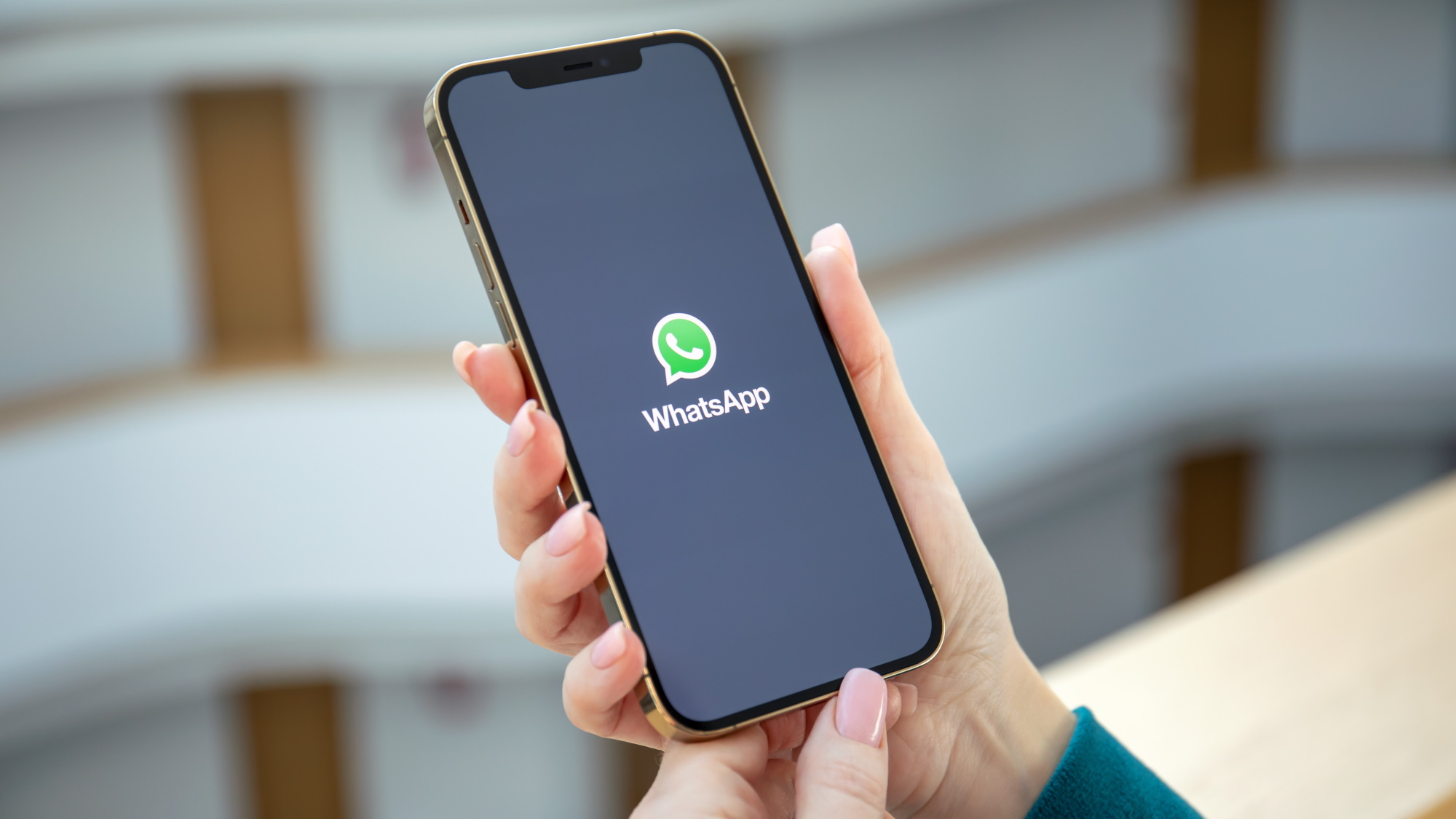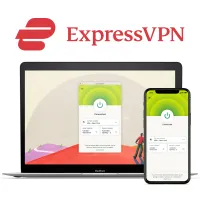How to use WhatsApp in China using a VPN
Bypass the Great Firewall of China and stay connected

Fortunately, you can stay connected to friends and family with the best VPN for China—whether you live in the country or are just visiting.
Why? Well, a Virtual Private Network (VPN) spoofs your real location, fooling sites into thinking you're somewhere else in the world, and allowing you to browse the web without restrictions. Plus, a VPN encrypts the data your device sends and receives to make it unreadable to any would-be snoopers.
Currently, WhatsApp is blocked in China (as well as North Korea, Syria, Qatar, and the UAE) because it utilizes end-to-end encryption. More than 2 billion users take to the app every day to chat, call, and video conference—which means that WhatsApp is often the target of temporary bans during protests and times of political turmoil.
You're also likely to find WhatsApp (and other social networking apps) blocked at work or school. These institutions do this to keep you focused on your work—but you can reclaim your freedom with the help of one of the best VPNs around. Keep reading, and I'll show you how to unblock WhatsApp in China, and beyond, with a VPN.
Today's best WhatsApp VPN
ExpressVPN: the best VPN for unblocking WhatsApp
ExpressVPN is the very best VPN for China—and pretty much everywhere else. The service has servers in Hong Kong, which come in handy for folks in China looking to maximize their security and speed, and powerful privacy-enhancing tools ensure you can access WhatsApp even if the app has been banned.
Try ExpressVPN today, and check out its suite of fresh apps, with a handy 30-day money-back guarantee.
Why do I need a VPN to unblock WhatsApp?
As I mentioned earlier, there are some places (and even entire countries) where accessing WhatsApp is downright impossible. This is thanks to blocks placed on the server preventing anyone connected to a particular network access to specific websites, apps, and services.
Environments like schools, colleges, and offices may have such blocks in place to avoid disruption to working efficiency. If you want to access WhatsApp while at school or work, then, you'll need a VPN to bypass these restrictions. It will also give you better online anonymity, assigning you a new IP address that will trick any block into thinking you're elsewhere.
The same functionality can be utilized when in any country that restricts the use of certain apps and websites. Abroad in China and want to use WhatsApp? You can keep in touch with loved ones simply by connecting to a VPN to appear as if you're in a country that doesn't block the messaging app—like your native country.
Using WhatsApp in China in three easy steps
Using WhatsApp in China in three easy steps
As we have seen, with a VPN it's super easy to get access to WhatsApp in China. All you have to do is follow these simple steps:
- Download a VPN—our number one pick is ExpressVPN when in China
- Connect to a server located outside of China—preferably to somewhere that doesn't have WhatsApp geo-restricted
- Start using WhatsApp like normal!
Unfortunately, the Chinese government is all too aware of how easy it is to switch to using ExpressVPN and bypass their restrictions, so they’ve blocked access to ExpressVPN’s website.
The best solution to this is to simply visit ExpressVPN’s website before you leave, set up your subscription and download the necessary software to each of your devices.
If you weren’t able to do this and/or are already in China, you have a few options.
Use the Tor Browser to access the website of ExpressVPN or another reliable VPN provider. (Although China also attempts to block Tor, you can send an e-mail using the Tor Project’s GetTor service to obtain a download link). Once installed, make sure to use a Tor bridge to prevent your ISP from blocking it.

Wonders of WhatsApp
There's plenty of reasons why WhatsApp’s such a popular app, and why it has such an incredibly large user base - which probably means your friends and family are already using it (a persistent issue with new messaging apps looking to gain traction).
WhatsApp also features cross platform support with apps for smartphones from Apple, Android, and Windows Mobile, and desktop apps for both the Mac and Windows platforms.
It also has video calls, and no cost, internet based international calling. This makes WhatsApp especially useful for international travel as you can keep in touch while avoiding costly international roaming, and SMS fees while abroad.
WhatsApp claims to use the open source “Signal Protocol” for communication which in theory provides end-to-end encryption (E2EE) for all messages, calls and videos. When you use E2EE the necessary keys to encrypt and decrypt your communications never leave your device. This should mean, in theory, that even WhatsApp can’t read your messages as they move across their servers.
WhatsApp worries
Although the Signal Protocol itself is open source, WhatsApp isn’t. SInce the app’s code can’t be examined by security experts and the coding community regularly, there’s no way to tell if there are any major security bugs or even malicious “backdoors” to steal your data.
This is a particular worry now that Facebook (Meta) owns WhatsApp, as their business model mainly relies on serving users targeted advertising.
In October 2022, WhatsApp announced changes to its privacy policy. Specifically this concenred user metadata : for instance, who you talk to, your location and there’s, what time of day you talk and much more.
This is very worrying for privacy and it’s not surprising that some WhatsApp users have switched to open source messaging apps like Signal, which are open source and use end-to-end encryption instead. This might also be why the Chinese government also blocked access to Signal recently.
What about WeChat?
Earlier on, we touched on the most popular messaging app in China, WeChat. Switching to this might seem like a good alternative to WhatsApp given the service isn’t blocked in China. It’s incredibly popular and used by an estimated one billion people after all.
Still, you have to ask yourself : why are both WhatsApp and Signal blocked while WeChat has been left alone?
It might have something to do with the many privacy issues surrounding it. Admittedly the censorship features don’t apply to Chinese ex-pats using foreign cellphone numbers.
Still, security experts like CitizenLab have reviewed the program in the past and found it also censors certain keywords, blocks users from certain sites and may even contain ‘backdoors’ for the Chinese government to read your messages.
In 2021 Mozilla reported a number of failings with the WeChat service, including:
The same report includes a detailed breakdown of WeChat’s privacy policy, which they say is so huge and overly complex it’s difficult to tell what happens to your data, even if you try to delete it.
Most importantly, WhatsApp and Signal, it also doesn’t use end-to-end encryption. This is itself a good enough reason not to use it if you take your privacy seriously.
Is WhatsApp any good?
There's plenty of reasons why it's such a popular app, and why it has such an incredibly large user base—which probably means your friends and family are already using it (a persistent issue with new messaging apps looking to gain traction).
WhatsApp also features cross platform support with apps for smartphones from Apple, Android, and Windows Mobile, and desktop apps for both the Mac and Windows platforms.
Plus, messages have end-to-end encryption, video calls, and no cost, internet based international calling. This makes WhatsApp especially useful for international travel as you can keep in touch while avoiding costly international roaming, and SMS fees while abroad.
Whatever secure messaging app you use though, the bottom line is that you’re going to be much safer through combining it with any of the best mobile VPN apps. This way your messages are encrypted and your IP address isn’t revealed to the Internet at large, so you’re less likely to be targeted.
Above all, remember that through using an encrypted VPN tunnel, no one with access to your ISP’s records will be able to tell what specific messaging app you’re using: since all your traffic is encrypted, your ISP won’t be able to tell one type of content from another.
Sign up for breaking news, reviews, opinion, top tech deals, and more.
Jonas P. DeMuro is a freelance reviewer covering wireless networking hardware.
- Nate Drake
- Chiara CastroNews Editor (Tech Software)
